Dr Jekyll And Mr Hyde (1941)
Directed by: Vcitor Fleming
Written by: John Lee Mahin
Starring: Donald Crisp, Ingrid Bergman, Lana Turner, Spencer Tracy
HCF may be one of the newest voices on the web for all things Horror and Cult, and while our aim is to bring you our best opinion of all the new and strange that hits the market, we still cannot forget about our old loves, the films that made us want to create the website to spread the word. So, now and again our official critics at the HCF headquarters have an urge to throw aside their new required copies of the week and dust down their old collection and bring them to the fore…. our aim, to make sure that you may have not missed the films that should be stood proud in your collection.
HCF REWIND NO.77. DR JEKYLL AND MR HYDE [1941]
AVAILABLE ON DVD
RUNNING TIME: 113 mins
In Victorian London, a church service attended by many including Dr Jekyll is disrupted by a drunk who is then escorted out. Jekyll is engaged to Beatrix Emery but her father Charles voices his discomfort at their public displays of affection and even more at a speech Jekyll gives at a dinner party. He says that within every person lurks impulses for both good and evil, and that if these impulses were separated, the good side could reach heights only dreamed of before. That evening, he saves barmaid Ivy Peterson from an attacker and, as he sees to her wounds, is attracted to the very available woman but resists temptation. Henry throws himself into his work and after experimenting with rabbits and guinea pigs decides to try it his drug himself after his initial idea of trying it on the man who went mad in the church is prevented by the man dying. In doing so, he releases the evil Mr Hyde…….
It’s a constant source of debate amongst fans of classic horror. Which version of Dr Jekyll And Mr Hyde is best, the 1931 version or the 1941 one? More people seem to err on the side of the ’31 picture, something which I agree with, though the ’41 remake does have its fans, is still a fine film, and on the question of who out of Fredric March and Spencer Tracy is the best Jekyll and Hyde, I would actually answer Tracy. The main problems with the ’41 version are that it slavishly follows the earlier film too much, and the extra scenes it does add don’t contribute much and considerably slow the pace down. It also suffers from the tighter censorship that was in evidence in 1941 and is therefore a little tamer, though it is still rather more daring than was the norm at the time. For me, watching this version after the ’31 film is always a somewhat disappointing experience, but taken on its own, it’s a good effort and there are enough aspects that are well done to still make it a minor classic. The tragedy is that it could have been superb and a very different film than the almost scene by scene remake that it ended up being.
MGM deciding to remake a highly acclaimed film that was only ten years old and had been successfully re-released five years later [albeit somewhat censored] was perhaps not the best of ideas, but when Spencer Tracy came onboard he had some interesting ideas for the project, one being that one actress [who he wanted to be his later co-star Katherine Hepburn] would play both of the women in the film, and another being that Jekyll would turn into Hyde not through a potion but alcohol or drugs. These two ideas alone would have made the film a very different one from the ’31 film, but the studio ignored his suggestions and proceeded to make a very close remake of the earlier work instead. Tracy grew very uncomfortable in the role and Lana Turner and Ingrid Bergman swapped roles as the two women. Though tamer than the Mamoulian film, it still suffered cuts from the draconian censors of the time, most notably of some hallucinatory montages [more on these later] and some psychological moments where Jekyll seems to talk with his alter-ego. These scenes exist in the German version and is it greatly to be hoped that one day the film will get a proper restoration on DVD or Blu Ray, as it seems that it would be improved greatly. When released it did big box office though had poor reviews, and Fredric March famously sent his friend Tracy an amusing telegram thanking him for his biggest career boost, as Tracy’s performance was routinely savaged.
Rather than opening with a lengthy subjective camera sequence of Jekyll going about his business, this version begins with a scene in church where a loon yells about the restrictions of morality. A solid introduction to one of the themes of the film, though it also immediately tells us that this is not going to have much in the way of innovative direction like the ‘31’ picture. Victor Fleming, who had previously just made The Wizard Of Oz and Gone With The Wind [he was nothing it not diverse!], avoids stylistics and just gets on with telling the story, though he fails to give it much pace, held back by John Lee Mahin’s screenplay, which suffers from many scenes just being too long. Slight additions or alterations include Jekyll experimenting on animals in a rather effective montage, Jekyll giving his speech at a dinner party rather than a university, and wanting to experiment on a man first. These are all okay but don’t really add much, and around the half way point the film becomes an almost exact copy of the earlier film, but slower and tamer in its sexuality, with for example Ivy changed from an obvious prostitute to a barmaid. Hyde’s abusive relationship with her is still here, but much else is toned down. Scenes may be recreated, but miss certain details or even lines.
This is most notable in the first meeting between Jekyll and Ivy. In the earlier version she blatantly ‘comes on’ to him and is clearly naked under a sheet. In this one she just somewhat flirts and they kiss while she remains clothed for the duration. You get the impression that previously Ivy falls for what this seemingly decent gentleman represents rather than Jekyll himself, but Ivy just falls traditionally in love with Jekyll here. Another particularly weak example of toning down is when Hyde first meets Ivy, and in the older film, smashes a wine bottle and threatens to thrust half of it into someone’s face. Here, he just starts one of those bar brawls which seem to start automatically in the movies. Still, there is one striking element of this version which is quite brave, and that is the two short montages that occur when Jekyll first changes into Hyde. Rife with Freudian symbolism such as Hyde whipping two horses who have the faces of Beatrix and Ivy superimposed over them, they are very audacious even in their cut form [which is the only way to see them unless you manage to obtain a German version].
We don’t actually see Jekyll turn into Hyde properly until three quarters of the way through, and it’s then done with the usual ‘dissolve’ manner. The more subtle approach to Hyde works well elsewhere. Fredric March’s Hyde looks maybe too bestial and certainly would not be able to go anywhere without being noticed, but Tracy’s Hyde sports far more restrained makeup and his voice, expression and overall demeanour convey a profound evil that is very chilling and also very human. You could read about this Hyde in the papers one day. He could be living next door. Though I think overall this Dr Jekyll And Mr Hyde is considerably weaker, Tracy’s performance in it outdoes March’s. There are scenes where he is Jekyll and seems on the verge of becoming Hyde at any moment, showing acting of such subtlety it’s almost impossible to put into words. As the film plods to its climax though it’s impossible to shake of the feeling of déjà vu, though one nice touch has Jekyll’s friend Lanyon be the one who shoots Hyde.
There are aspects of this film which show great care, and others which just don’t. At times the sets looks as if they are almost the same as before, while elsewhere the usual MGM approach of a glossy look and ornate sets combined with variable matte paintings falls a little flat. We certainly don’t feel we are in Victorian London this time. The performances are fine all-round though, with Ingrid Bergman in particular delivering some superb acting in many of her scenes as Ivy, though one can’t get away from the idea that her and Lana Turner swapping roles resulted in miscasting. Obviously Bergman’s part required the stronger acting, but she just doesn’t entirely convince. Franz Waxman’s music score is a little too’ romantic’ at times [a convention of the times] but seems to underuse the creepy [and rather subtle] motif he uses for Hyde, but overall it’s a solid score with some especially powerful music during the Freudian montages. If the ’31 version of Dr Jekyll And Mr Hyde had never existed, this ’41 version might very well be held up as the best version of Robert Louis Stevenson’s novel. Sadly though it does exist, and this often effective, often intriguing but also often pointless version just can’t help suffering by comparison.

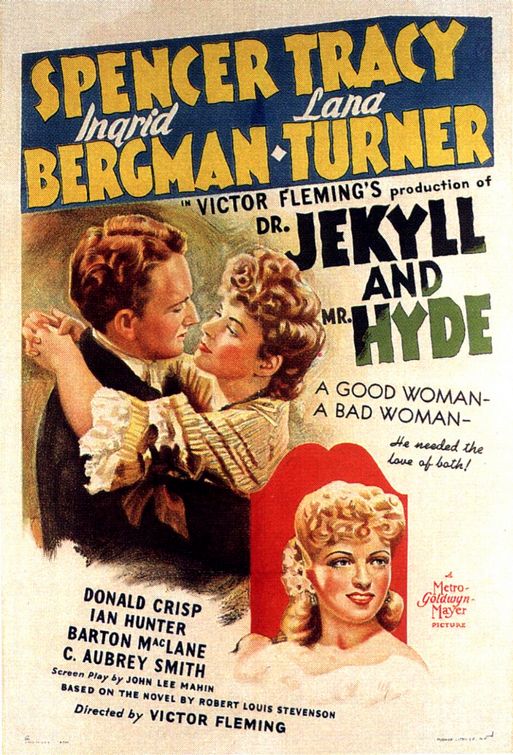
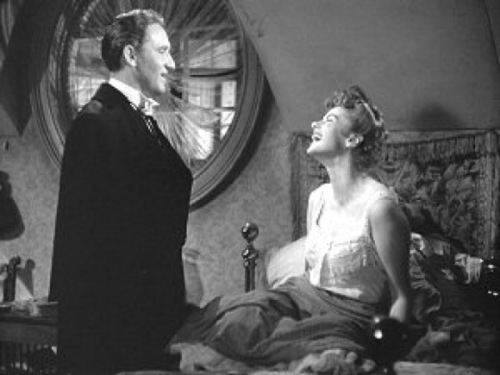
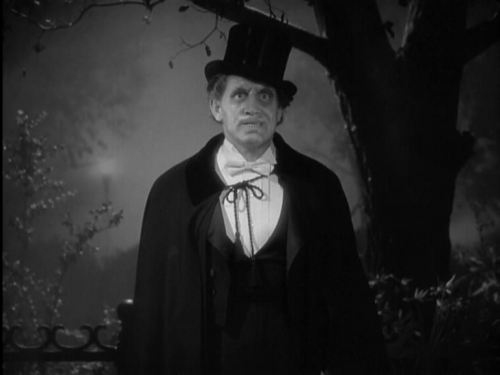




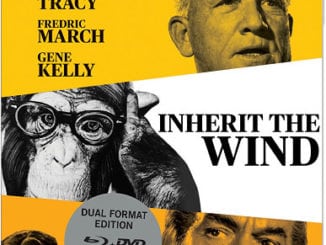
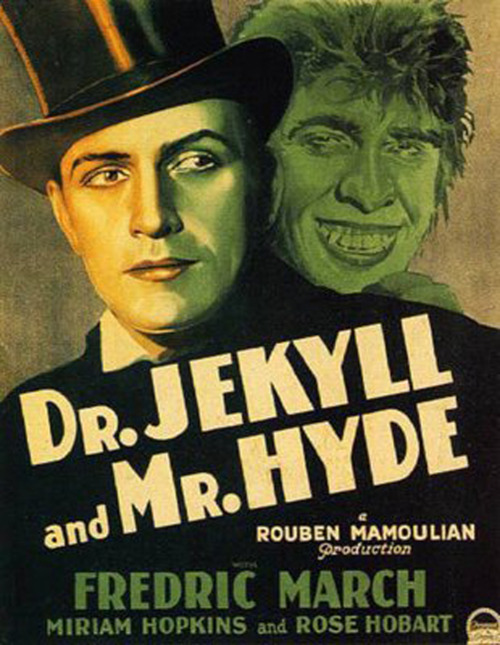
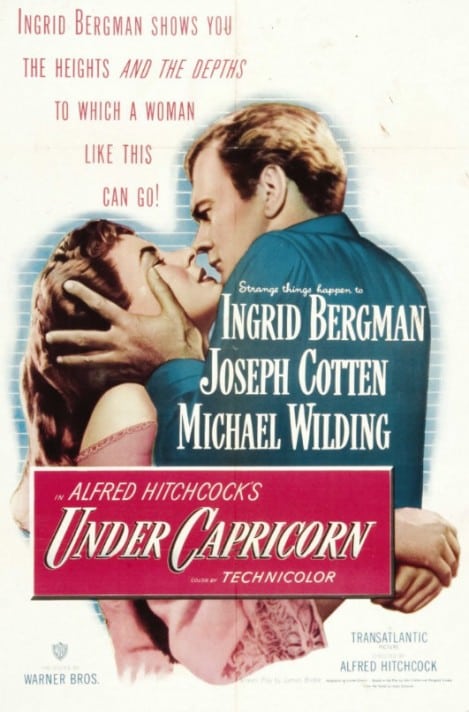
Be the first to comment